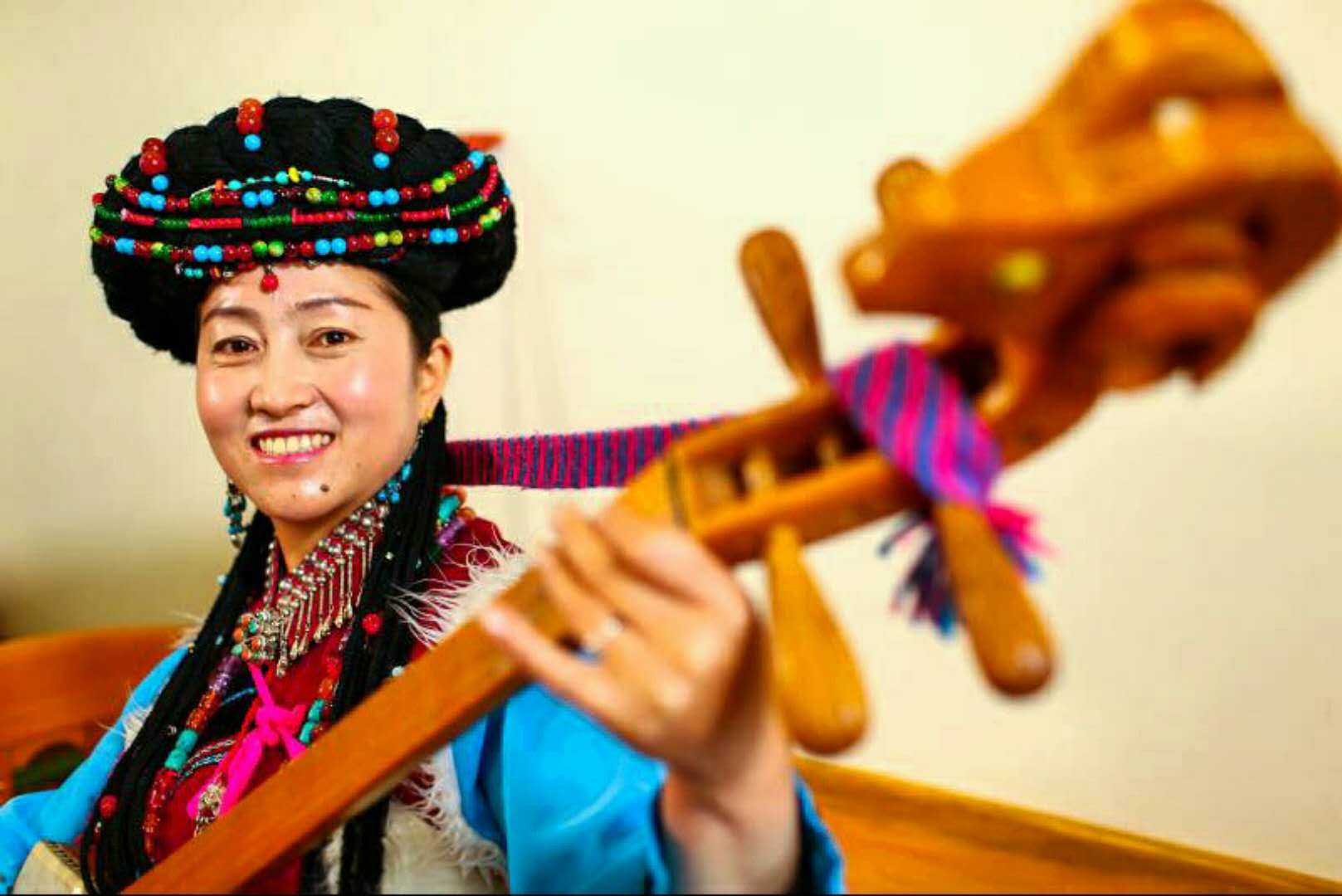
Folk Songs
5. 'Xifan tune'
Lyrics: 'My distant lover, when will you come to see me? On the day you come to see me then, then I will come out to meet you. There are flowers when you come. There's water when you leave. I love you and you love me. We keep our love in our hearts.' (Lyrics translated from Pumi language to Mandarin by Li Haishu.)
'Xifan tune' (Example 5) is a Pumi love song. 'Xifan' is a historical name for the Pumi people. This song is sung by a Pumi woman, Li Haishu, in Pumi language (Figure 3).
Composer: 0
-
"Li Haishu - Xifan Tune"
6. Hani mountain songs
Many Hani people inhabit mountain areas and make a living by growing food on terraced fields. Because building these terraces requires coordinated labor, the Hani have developed a strong choral tradition with multiple vocal parts that combine in distinctive harmonic layers. Hani's folk practice includes roughly eight categories according to different functions, such as mountain songs, lullabies, songs for arranging marriages, and ritual songs. In Hani culture, love songs cannot be sung inside villages. Instead, young people go to the mountainside to sing love songs. Traditionally, male and female partners sing in turn, in a question-answer pattern (Example 6: Performed by Wu Pingsuo, Wu Yuesong, Wu Rannu, and Wu Zhouniu (from left to right). Courtesy of Qian Lijuan).
Example 7: Hani 'Mountain song'
7. Naxi marriage lament
In the past, people in many different places of China sang laments when their daughters married, a custom that still takes place among ethnic minority groups such as the Hani, Yi, or Naxi in Southwest China. Because daughters typically married out of the village and roads were difficult to travel, the married daughter was rarely able to return to see her parents. As a result, marriage song tunes were usually very sad (Example 7: Performed by He Yueyuan and other Naxi staff at the Creation Cultural Experience Centre. Lijiang City. Courtesy of Qian Lijuan). On fieldwork with a Hani woman in her 50s in Jinping (May 2018), the singer stopped several times as she couldn't keep herself from crying, so I was unable to make a complete recording of her song.
Example 8: Naxi 'Marriage Lament'





Modern Chinese songs were promoted by those advocating different religious and political stances in the age of national revival and modernization.






